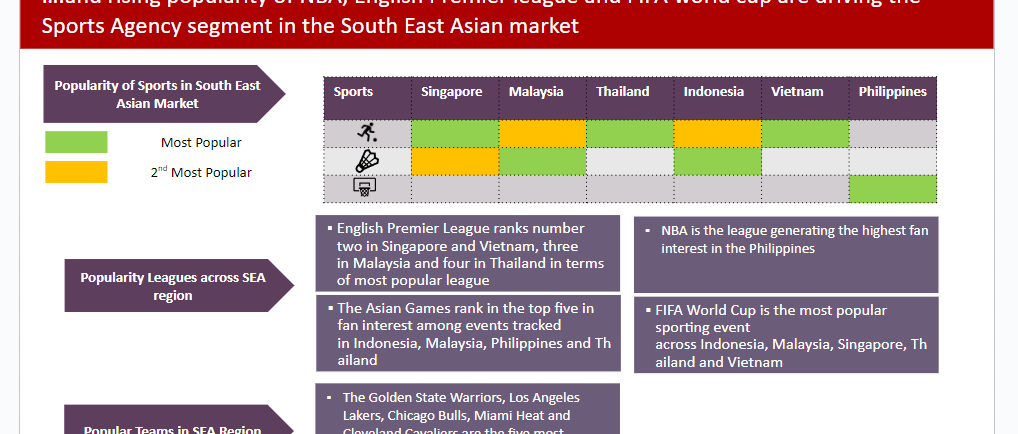Sport Agency Market Landscape in South East Asia
The Southeast Asian sports agency market, though fragmented, is growing due to increased social media use, data availability, and the popularity of global sports events. This offers opportunities for new entrants.
9/14/20241 min read


The sports agency business in Southeast Asia has undergone significant transformation in recent years. Despite its fragmented nature, the industry offers ample opportunities for new entrants. Several factors are driving growth in this sector, including:
Increased Social Media Usage: The proliferation of social media platforms has created new avenues for sports agencies to reach and engage with fans.
Abundant Viewer Data: The availability of vast amounts of viewer data enables sports agencies to tailor their strategies and offerings to specific audiences.
Need for Converged Media Strategy: The convergence of traditional and digital media requires sports agencies to adopt a comprehensive approach to marketing and content creation.
Rising Popularity of Global Sports: The growing popularity of leagues like the NBA, English Premier League, and FIFA World Cup has increased demand for sports agency services in Southeast Asia.
In response to these trends, sports agencies in Southeast Asia are expanding their scope of services beyond traditional offerings. They are becoming more open to collaboration with other stakeholders, including teams, athletes, and brands. Additionally, there is a growing focus on esports, recognizing its potential to attract new audiences and generate revenue.
To capitalize on the opportunities presented by the digital age, sports agencies are investing in data analytics and focusing on regional league games. These efforts aim to combat the challenges faced by the sports sector, which has been significantly impacted by the pandemic.
Despite the fragmented nature of the sports agency business in Southeast Asia, the abundance of data and the tech-savvy generation present significant opportunities for growth. By leveraging these factors and adapting to the evolving landscape, sports agencies can position themselves for success in this dynamic market.
